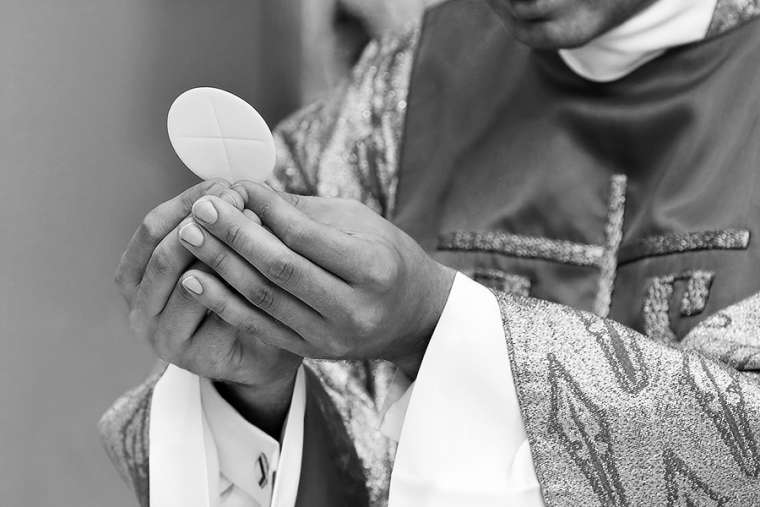– Following months of controversy, the German bishops’ conference has said it will further explore, in accordance with a letter from the Congregation for the Doctrine of the Faith, the topic of whether to allow Protestant spouses of Catholics to receive Communion.
“We would like to offer the Holy Father and the Roman Curia our assistance in this matter,” the permanent council of the German bishops’ conference said June 27. The council added that the topic of intercommunion will be taken up again at the September 2018 autumn plenary assembly of the German bishops’ conference.
The CDF letter provides “indications and a framework for interpretation,” the permanent council said, characterizing the letter as “an aid to orientation” for individual bishops.
The council stressed the importance of being on “an ecumenical quest to achieve a more profound understanding and even greater unity among Christians,” adding, “we consider ourselves to be obliged to stride forward in this matter courageously.”
“Inter-denominational married couples and families are very close to our heart,” said the council. “We would like to emphasise that Eucharistic communion and church fellowship belong together.”
The council said the bishops want to provide “spiritual assistance” for those addressing questions of conscience for Catholic-Protestant married couples who have “a grave spiritual need to receive the Eucharist.”
“They have a very close mutual bond resulting from baptism, faith and the Sacrament of marriage, and they share their entire lives,” said the council about Catholic-Protestant married couples.
“It is important for us that we are on an ecumenical quest to achieve a more profound understanding and even greater unity among Christians, and we consider ourselves to be obliged to stride forward in this matter courageously.”
In February Cardinal Reinhard Marx of Munich and Freising, president of the German bishops’ conference, had said the German bishops’ conference would publish a pastoral handout that allows Protestant spouses of Catholics “in individual cases” and “under certain conditions” to receive Holy Communion, provided they “affirm the Catholic faith in the Eucharist.”
Seven German bishops questioned the proposal and asked the Congregation for the Doctrine of the Faith whether a bishops’ conference may decide the question or whether the matter requires “a decision of the Universal Church.”
When several bishops from Germany visited Rome May 3, an inconclusive meeting ended with the Vatican sending the German bishops back, saying Pope Francis wanted the bishops to come to an agreement among themselves.
The pope later approved a May 25 letter from Archbishop Luis Ladaria, prefect of the Congregation for the Doctrine of the Faith, to Marx.
Admission to Holy Communion for Protestant spouses married to Catholics is “a topic that touches the faith of the Church and has relevance for the universal Church,” the prefect’s letter said. Allowing non-Catholics to receive Holy Communion, even in limited circumstances, would have an impact on ecumenical relations with other Churches and ecclesial communities “which should not be understated.”
Ladaria’s letter to Cardinal Max noted that while there are “open questions” regarding the admission of Protestants to Communion, “the competent dicasteries of the Holy See have already been charged with producing a timely clarification of these questions at the level of the universal Church.” It would be left up to diocesan bishops to judge when there is a “grave impending need” regarding the reception of the sacraments.
In a June 21 interview on the papal flight from Geneva to Rome, Francis discussed the topic of intercommunion, saying the matter should be decided by diocesan bishops, rather than bishops’ conferences. Approval by a bishops’ conference would make the matter “universal,” he said.
“The conference can study and give direction and opinions to help the bishops to manage the particular cases,” he added, saying that communion for Protestant spouses of Catholics “in special cases” is not a “novelty.”
The Code of Canon Law provides that in the danger of death “or if, in the judgment of the diocesan bishop or conference of bishops, some other grave necessity urges it,” Catholic ministers may licitly administer penance, Eucharist, and anointing of the sick to Protestants “who cannot approach a minister of their own community and who seek such on their own accord, provided that they manifest Catholic faith in respect to these sacraments and are properly disposed.”












